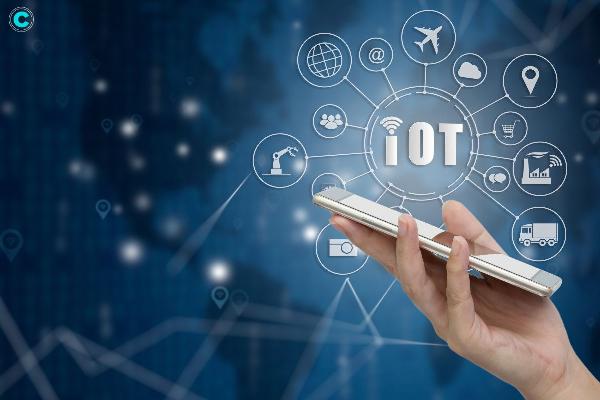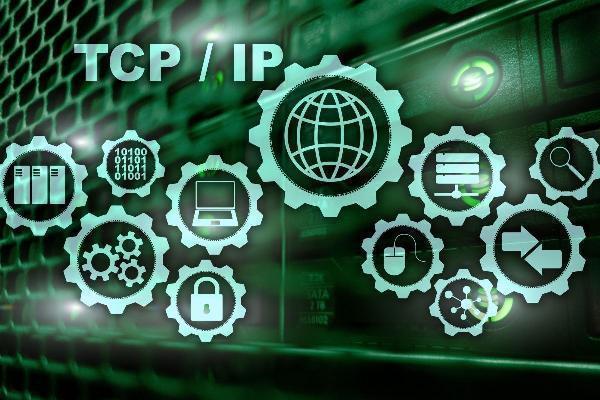Internet of Things Platforms: Empowering Connected Devices and Smart Solutions

Strong 8k brings an ultra-HD IPTV experience to your living room and your pocket.
Internet of Things Platforms: Empowering Connected | CyberPro Magazine In today’s fastly evolving digital landscape, the Internet of Things (IoT) stands out as a transformative force, reshaping industries and urban environments alike. At the core of this revolution are Internet of Things platforms, robust ecosystems of software tools and services designed to manage, connect, and analyze data from IoT devices. These platforms play a crucial role in enabling organizations to deploy scalable IoT solutions, optimize operations, and drive innovation across various sectors. Understanding the Internet of Things Platforms IoT platforms serve as centralized hubs that facilitate the integration and management of IoT devices, data, and applications. They provide essential functionalities such as device provisioning, connectivity management, data storage, real-time analytics, and application enablement. By leveraging these capabilities, businesses can harness the power of IoT to enhance decision-making, improve efficiency, and create new revenue streams. Key Features and Capabilities 1. Central to Internet of Things platforms is their ability to manage IoT devices across diverse networks and environments. They offer robust device management capabilities, allowing organizations to remotely monitor, configure, and update devices. This ensures optimal performance, security, and compliance with industry standards. 2. Connectivity management is another critical feature, supporting seamless communication between IoT devices, edge computing resources, and cloud platforms. Internet of Things platforms facilitate data transmission over various protocols (e.g., MQTT, HTTP) and ensure reliable connectivity via cellular networks, Wi-Fi, and Low Power Wide Area Networks (LPWAN). 3. Data analytics capabilities within Internet of Things platforms enable organizations to derive actionable insights from vast amounts of IoT-generated data. Advanced analytics tools process real-time data streams, identify patterns, detect anomalies, and predict future trends. These insights empower businesses to optimize operational processes, improve resource allocation, and enhance customer experiences. 4. Security is paramount in IoT ecosystems, and Internet of Things platforms incorporate robust security measures to protect data integrity, prevent unauthorized access, and mitigate cyber threats. Features include encryption, authentication mechanisms, access controls, and compliance with data protection regulations such as GDPR and HIPAA. 5. Scalability is essential for accommodating growing numbers of IoT devices and increasing data volumes. Internet of Things platforms offer scalable infrastructure and flexible deployment options, allowing organizations to expand their IoT deployments seamlessly and adapt to evolving business needs. Benefits of IoT Platforms Internet of Things Platforms: Empowering Connected | CyberPro Magazine Implementing IoT platforms yields significant benefits across industries: 1. Operational Efficiency By automating processes, optimizing resource utilization, and enabling predictive maintenance, IoT platforms enhance operational efficiency. Organizations can streamline workflows, reduce downtime, and achieve cost savings in production, logistics, and facility management. 2. Data-Driven Insights Real-time data analytics provided by Internet of Things platforms empower organizations to make informed decisions based on accurate, timely information. Businesses gain visibility into performance metrics, operational trends, and customer behaviors, enabling proactive management and strategic planning. 3. Enhanced Customer Experiences IoT-enabled applications deliver personalized experiences by tailoring products, services, and interactions based on user preferences and behavioral data. This enhances customer satisfaction, loyalty, and retention in competitive markets. 4. Sustainability Initiatives IoT platforms support environmental sustainability through energy-efficient practices, waste reduction strategies, and smart resource management. By monitoring and optimizing energy consumption, emissions, and resource usage, organizations contribute to sustainable development goals. 5. Innovation and Competitive Advantage Organizations leveraging IoT platforms drive innovation through the introduction of new products, services, and business models. By embracing IoT-driven solutions, businesses differentiate themselves in the market, attract new customers, and unlock revenue opportunities. Challenges and Considerations While the benefits of Internet of Things platforms are compelling, several challenges must be addressed: 1. Complexity Integrating diverse IoT devices, protocols, and legacy systems into a unified ecosystem requires expertise in IoT architecture, data integration, and system interoperability. Organizations must navigate complexity to ensure seamless deployment and operation of IoT solutions. 2. Security Risks IoT devices are susceptible to cyber threats, data breaches, and privacy vulnerabilities. IoT platforms must implement robust security measures, encryption protocols, and access controls to safeguard sensitive data and protect against malicious attacks. 3. Scalability and Infrastructure Managing large-scale IoT deployments and increasing data volumes necessitates scalable infrastructure, reliable connectivity, and efficient data management practices. Organizations must plan for scalability to accommodate future growth and ensure optimal performance. 4. Data Privacy and Compliance Collecting, storing, and analyzing vast amounts of IoT data raises privacy concerns and regulatory compliance challenges. Organizations must adhere to data protection regulations (e.g., GDPR, CCPA) and implement privacy-by-design principles to uphold consumer trust and legal requirements. 5. Skills Gap and Training The shortage of skilled professionals proficient in IoT technologies, data analytics, and cybersecurity poses a significant barrier. Organizations need to invest in training and talent development to build internal expertise and effectively leverage IoT platforms. Choosing the Right Internet of Things Platforms Internet of Things Platforms: Empowering Connected | CyberPro Magazine Selecting an IoT platform tailored to organizational needs requires careful evaluation of several factors: 1. Use Case Alignment Identify specific IoT applications and use cases relevant to industry requirements, operational goals, and strategic objectives. Evaluate platform capabilities in addressing specific business challenges and delivering desired outcomes. 2. Integration and Compatibility Assess the platform’s compatibility with existing IT infrastructure, applications, and third-party systems. Ensure seamless integration to facilitate data exchange, interoperability, and cohesive operation within the IoT ecosystem. 3. Security and Compliance Prioritize platforms with robust security features, encryption protocols, and compliance with regulatory standards. Verify data protection measures, access controls, and adherence to industry-specific security requirements to mitigate risks effectively. 4. Scalability and Flexibility Evaluate the platform’s scalability to support expanding IoT deployments, increasing device counts, and growing data volumes. Consider flexible deployment options, cloud scalability, and support for edge computing to accommodate future growth and evolving business needs. 5. Support and Ecosystem Assess the provider’s support services, technical expertise, and ecosystem of partners and developers. Consider the availability of resources, training programs, and community support for ongoing assistance, updates, and knowledge sharing. Case Studies and Success Stories Internet of Things Platforms: Empowering Connected | CyberPro Magazine Several organizations have successfully leveraged IoT platforms to drive innovation and achieve operational excellence: 1. General Electric (GE) Utilizes Predix, an industrial IoT platform, to optimize asset performance, predictive maintenance, and operational efficiency across manufacturing, healthcare, and aviation sectors. 2. City of Barcelona, Spain Implements IoT platforms for smart city initiatives, including smart lighting, waste management optimization, and environmental monitoring to enhance sustainability and citizen well-being. 3. Amazon Web Services (AWS) Offers AWS IoT Core, a managed cloud platform, enabling businesses to securely connect IoT devices, ingest and analyze data, and deploy IoT applications at scale in diverse industries. Conclusion Internet of Things platforms are at the forefront of digital transformation, empowering organizations to capitalize on the potential of connected devices, data analytics, and automation. By leveraging IoT platforms effectively, businesses can achieve operational efficiencies, drive innovation, and deliver superior customer experiences. However, addressing challenges such as security risks, scalability, and regulatory compliance requires strategic planning, investment in robust infrastructure, and ongoing commitment to IoT technology adoption. As IoT ecosystems continue to evolve, organizations that embrace scalable, secure, and interoperable IoT platforms will remain competitive, agile, and well-positioned for future growth in the dynamic digital landscape. Also Read: CyberPro Magazine
Note: IndiBlogHub features both user-submitted and editorial content. We do not verify third-party contributions. Read our Disclaimer and Privacy Policyfor details.







